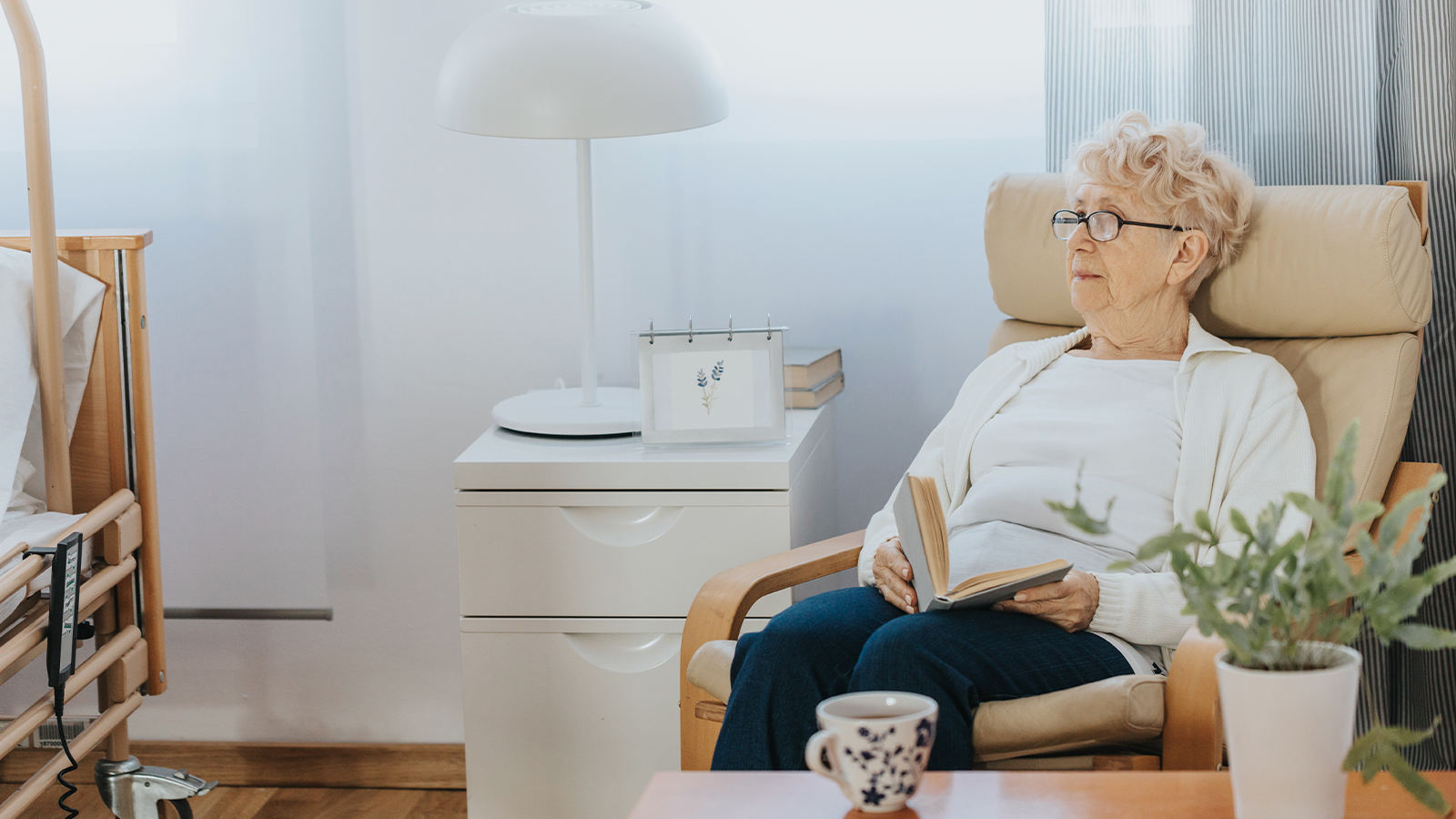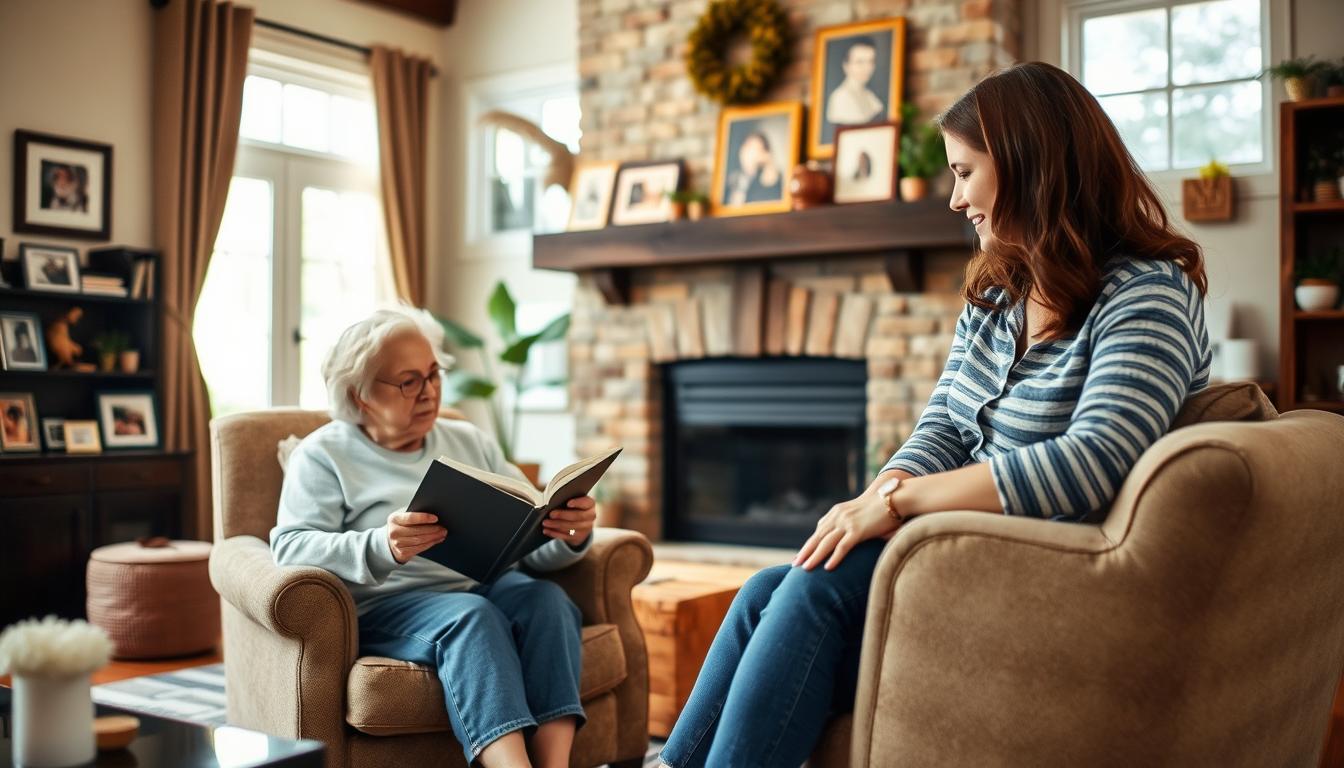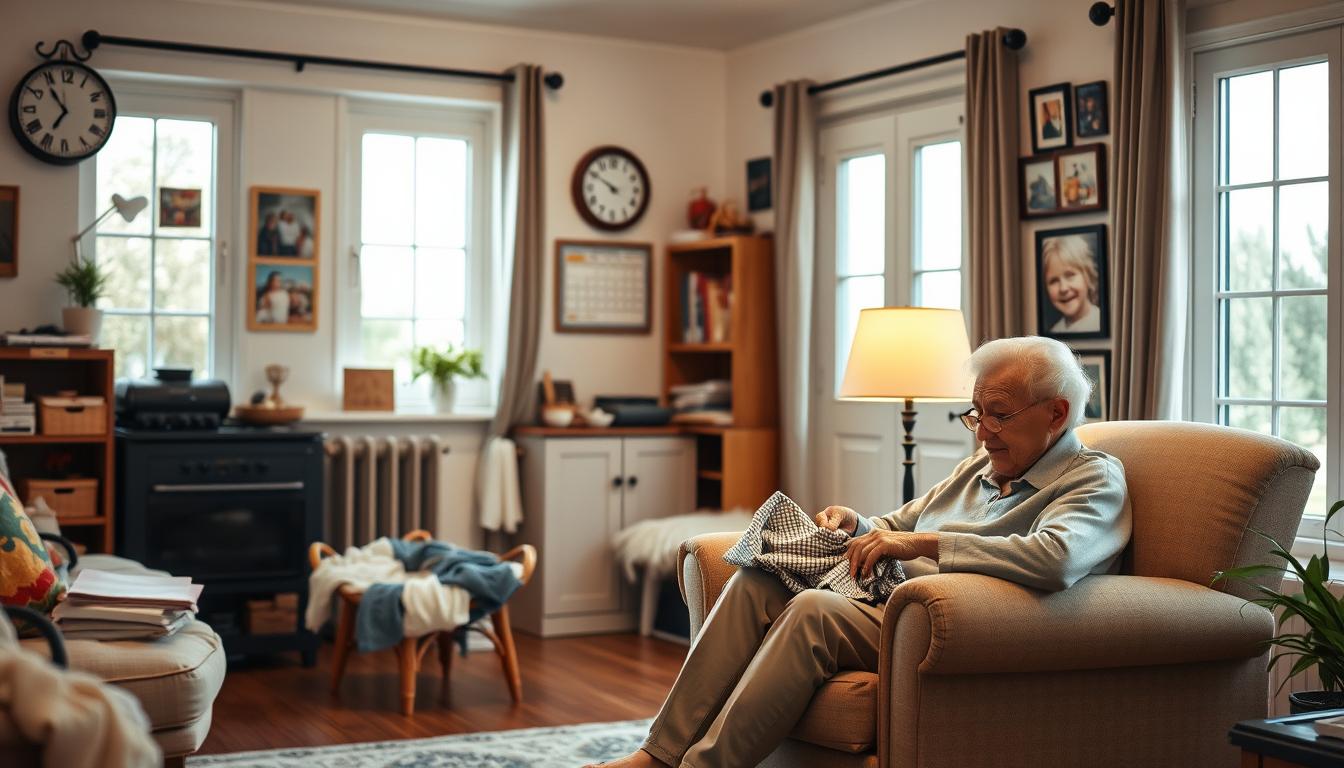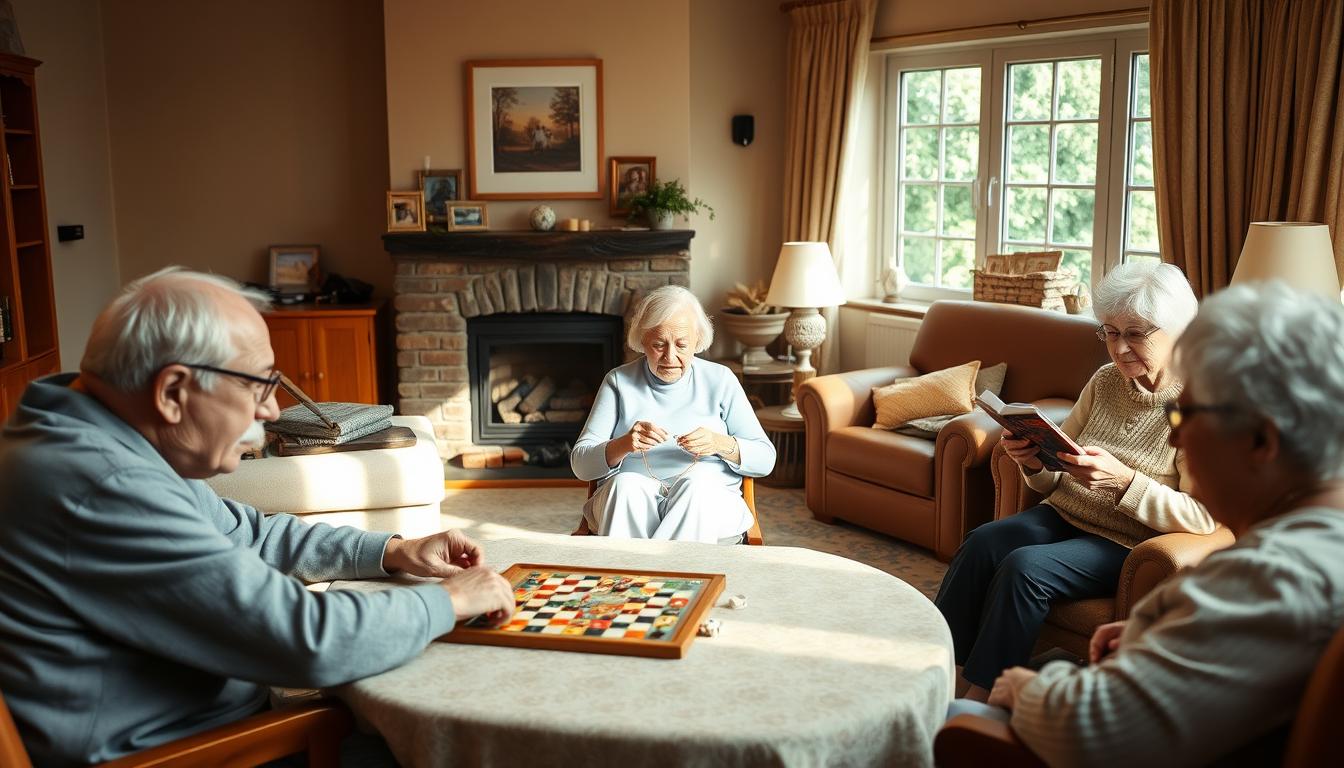Daily Routine for Dementia Patients: The Importance of Structure
May
25
2025
Caring for someone with dementia is a journey full of love, patience, and constant learning. While each day can bring new challenges, one of the best ways to support a loved one with dementia is by creating a consistent, compassionate routine.
A daily routine for dementia patients does more than just organize the day—it provides a foundation for comfort, confidence, and clarity. It turns uncertainty into predictability, which is especially important for people living with dementia. In this article, we’ll walk you through why a structured routine is essential, how to build one, and how to adjust it as the disease progresses.
Key Takeaways
- Daily routines help provide structure and familiarity for dementia patients
- Consistency in timing and sequence of activities is key
- Incorporate enjoyable and meaningful activities into the routine
- Allow for flexibility and rest periods as needed
- Adapting the routine as dementia progresses is essential for continued well-being
Understanding the Benefits of a Daily Routine for Dementia Patients
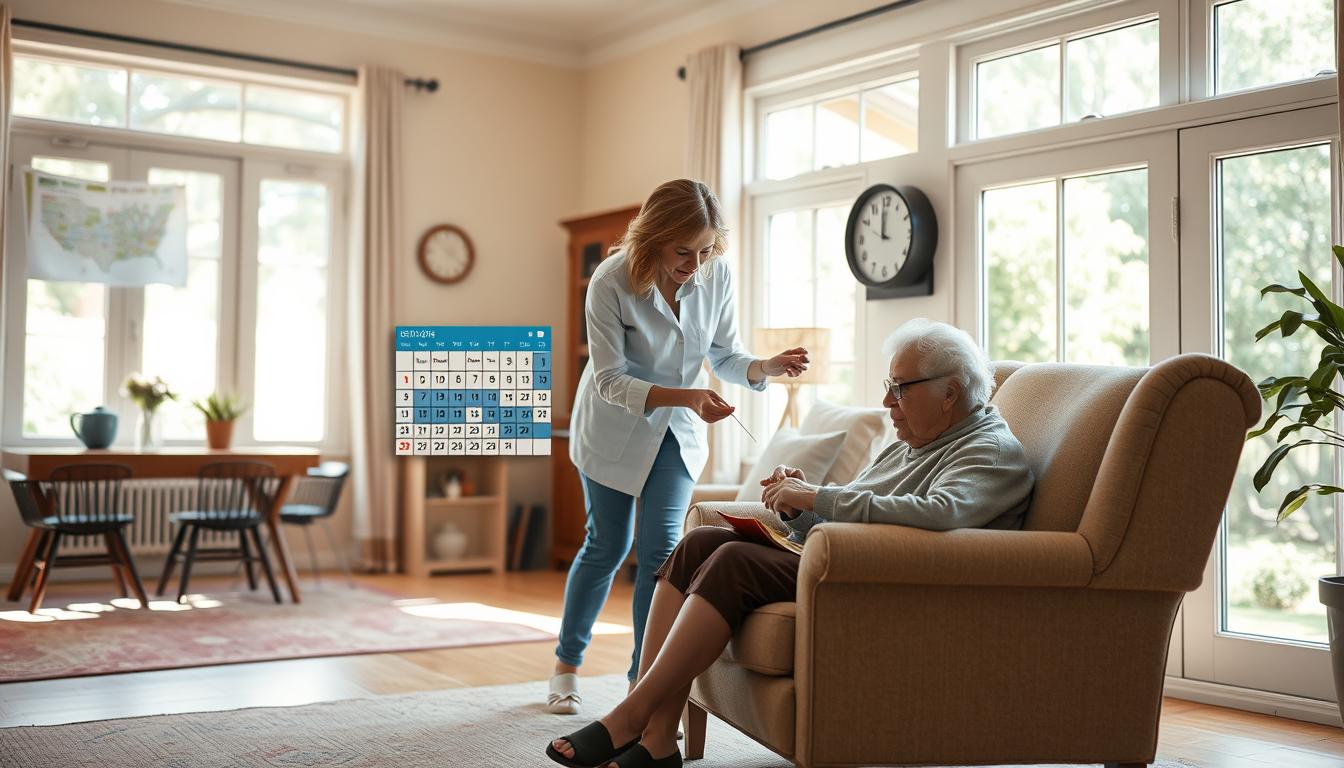
A thoughtful, consistent routine helps those with dementia feel safe and supported in their daily environment. Here’s how a well-planned schedule can make a difference.
Reducing Anxiety and Confusion
When someone has Alzheimer’s disease or another form of dementia, the world can feel unfamiliar—even frightening. A regular daily routine brings back a sense of order. When one knows what to expect, it eases the mental burden.
As one caregiver shared,
“Once we had a daily care plan in place, my mom stopped pacing and asking the same questions every few minutes. She felt more at peace.”
That peace of mind is the gift of structure.
Promoting a Sense of Security and Comfort
Creating a routine allows for familiarity. When older adults wake up, enjoy their mealtime, take a daily walk, or complete daily household tasks around the same time each day, they feel safe and secure. These aren’t just habits—they’re anchors.
You’ll create a predictable environment that brings calm and reduces frustration. The importance of a daily routine can’t be overstated when it comes to supporting your loved one emotionally.
Maintaining Cognitive and Motor Skills
Repeating tasks like setting the table, brushing teeth, or doing light chores supports memory and movement. These small, everyday actions are part of the activities of daily living that stimulate the brain and body.
Incorporating a routine that includes activities—whether it’s music, drawing, folding laundry, or even helping to bathe—can help preserve skills for longer. This is key to helping people with dementia thrive as they navigate a dementia diagnosis.
Key Elements of a Dementia-Friendly Daily Routine
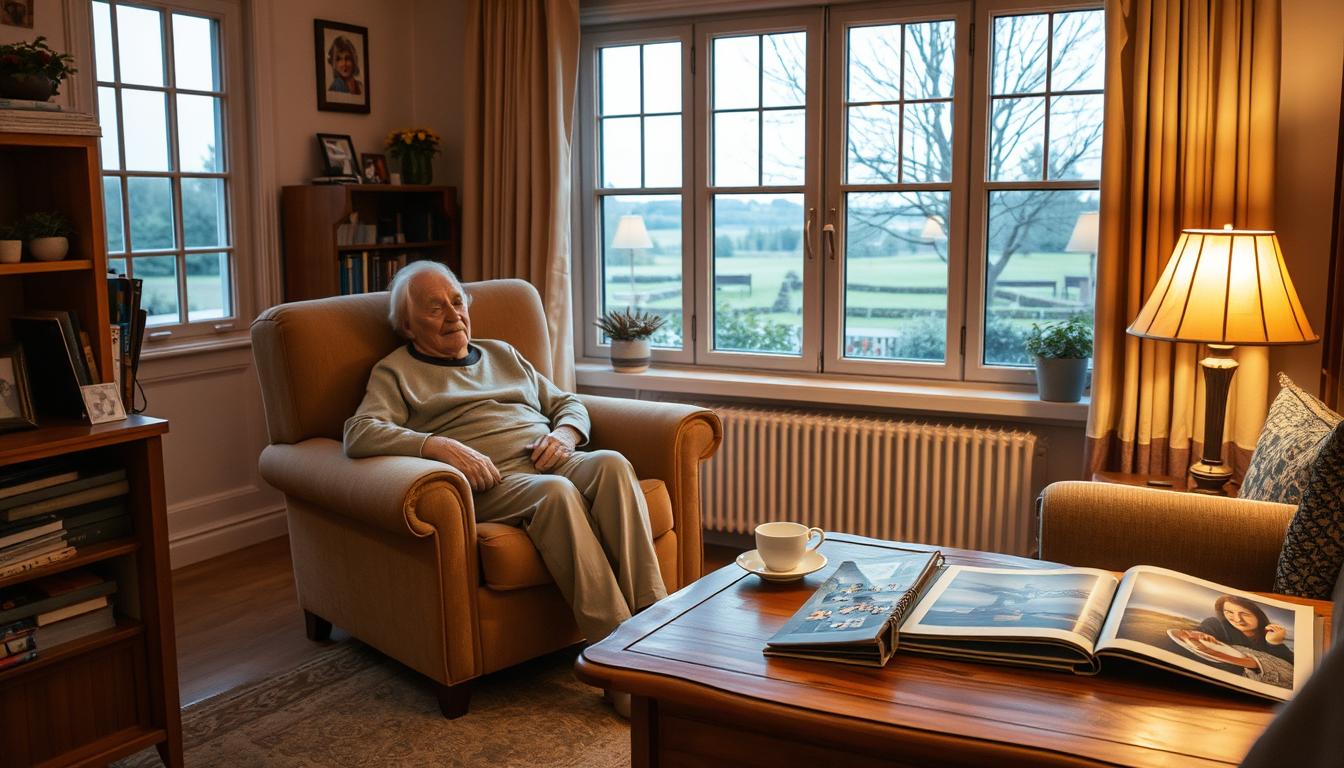
Designing a routine for your loved one isn’t about perfection. It’s about intention, rhythm, and care.
Think of it like creating a playlist—not every song has to be a hit, but the flow matters. One family found that simply starting each morning with their dad’s favorite jazz record and a cup of coffee helped him start the day with a smile—even on tough days.
It’s those small, consistent touches that turn a routine into something meaningful.
Consistency in Timing and Sequence of Activities
Waking up, dressing, eating, resting, and bedtime should happen at similar times each day. This consistency creates a sense of order.
Here’s a sample daily schedule for inspiration:
| Time of Day | Activity |
| 7:00 AM | Wake up & morning hygiene |
| 8:00 AM | Breakfast & light conversation |
| 9:00 AM | Gentle stretching or short walk |
| 10:00 AM | Music or puzzle time |
| 12:00 PM | Lunch |
| 1:00 PM | Rest/quiet time |
| 3:00 PM | Craft or household chore, snack |
| 5:00 PM | Dinner |
| 6:00 PM | Favorite TV show or reminiscing |
| 8:00 PM | Prepare for bed |
The goal isn’t rigidity—it’s rhythm.
Incorporating Familiar and Enjoyable Activities
Daily routines can help a person stay connected to what brings them joy. Think about what they loved in the early stages of dementia. Did they garden? Cook? Dance? These activities can still have a place in their day.
Engage your loved one with simple versions of those activities, such as watering a plant, stirring ingredients, or listening to music. These joyful moments give them a sense of purpose.
Allowing Flexibility and Rest Periods
Not every day will go according to plan—and that’s okay. People living with dementia often have good and bad days.
Build in breaks. Rest matters just as much as stimulation. Flexibility ensures the routine is important for dementia, not overwhelming. Some daily activities may need to be skipped if your loved one is tired or agitated. Listen, observe, and adjust.
Creating a Personalized Routine for Dementia Patients
No two people experience memory loss the same way. That’s why creating a daily routine should be tailored to each individual’s habits, preferences, and pace.
Some people may feel most alert and engaged in the morning, while others may come alive in the afternoon. Certain activities might spark joy for one person but cause frustration for another.
Paying attention to what your loved one responds to—both positively and negatively—helps you build a routine that feels natural and respectful.
A personalized approach not only supports emotional well-being but also fosters trust and connection, which is essential for navigating the ups and downs of dementia care.
Observing and Understanding Individual Preferences
Before you develop a daily routine, pay attention. When does your loved one seem most alert? When are they tired or anxious? Are mornings peaceful but evenings challenging? Adjust the routine around those rhythms.
“I realized that Mom got really overwhelmed in the evenings, so we shifted the busier parts of the day to the morning. That simple change helped decrease her frustration.”
It’s all about working with—not against—their natural flow.
Involving the Person with Dementia in Decision-Making
Whenever possible, involve them. This gives them a sense of control, even in small ways. Let them choose between two outfits, decide what to drink with lunch, or pick a song to play. These moments preserve dignity and independence. Be careful not to give more than 2 choices at a time. This can be overwhelming.
Tasks can help with engagement and confidence. Even small ones—like folding towels—remind them that they’re still contributing.
Adapting the Routine as Dementia Progresses
As the stages of the disease unfold, changes are inevitable. What worked in the early stages might no longer suit your loved one’s needs.
This is where flexibility, patience, and compassion really shine. As dementia progresses, your routine for dementia patients may need to become more simplified. For example:
- Replace complex tasks with simpler versions.
- Shorten activity periods and allow more time to rest.
- Use visual cues or gentle reminders to guide daily living.
Eventually, your loved one may lose the ability to follow certain parts of the routine. That’s normal. Adjusting with grace is part of long-term care.
If at-home care becomes too difficult as a family caregiver, consider home care specializing in Dementia, specialized memory care options or a senior living community that offers professional dementia care. The right environment can still provide your loved one with a predictable environment and emotional stability.
Tips to Create a Gentle, Effective Dementia Routine
Here are a few reminders for establishing a routine that’s comforting and sustainable:
- Keep daily structure predictable but not rigid.
- Use verbal or visual reminders to guide transitions.
- Schedule stimulating activities earlier in the day.
- Allow plenty of time for tasks—rushing causes stress.
- Include breaks and comforting rituals (like music or a warm drink).
- Adapt based on energy levels and mood.
- Remember: Routine important—but kindness matters most.
Conclusion: The Power of Structure in Dementia Care
A thoughtful dementia routine is more than a checklist. It’s a gift you give to your loved one every single day. It can help a person with dementia feel safe, valued, and understood. Whether they’re facing Alzheimer’s disease or another form of dementia, a structured day brings back what the disease tries to take away: peace, purpose, and connection.
Creating routines may not erase the effects of long-term memory loss or the loss of cognitive and physical abilities—but it will absolutely improve quality of life. And in the end, that’s what truly matters.
Whether you’re navigating care at home or considering an assisted living or memory care community, know that routines—and the love behind them—are some of the best tools to care for your loved one.
If you need help caring for a person living with dementia, You’re First Home Care is here to guide you with compassion and experience. We specialize in helping those with dementia maintain dignity, joy, and security—one day, one routine, one moment at a time.
FAQ
Why is a daily routine important for people with dementia?
A daily routine is key for those with dementia. It reduces anxiety and confusion. It also makes them feel secure and comfortable. It helps them keep their thinking and motor skills sharper. Dementia makes planning and completing tasks harder. A routine helps them remember better.
How can a daily routine benefit dementia caregivers?
Daily routines ease stress and anxiety for caregivers. They know what to expect. This reduces unwanted behaviors in dementia patients. Behaviors like aggression and restlessness normally decrease. This makes caregiving less stressful.
What are the key elements of a dementia-friendly daily routine?
A dementia-friendly routine includes regular bathing, dressing, and grooming. It involves the person in household chores. Sharing meals and meal prep is also important. Regular physical activity and hobbies are included. Winding down at night is key. Remember, flexibility and rest periods are important too.
How can I create a personalized routine for someone with early-stage dementia?
Creating a routine for early-stage dementia requires attention to their needs. Focus on bathing, dressing, grooming, eating, and toileting. Also, consider their favorite clothes, foods, and drinks. Involve them in decisions and activities they enjoy. This could be music, TV shows, movies, or hobbies.
What should I do as dementia progresses and my loved one’s abilities change?
As dementia advances, routines need to adapt. They will need more help with tasks. If they can do some tasks with assistance, do them together. This approach keeps them engaged and comfortable. It also relieves anxiety by providing a predictable environment.
What can I do when challenging behaviors arise?
If there is a sudden change in behavior from one day to the next, consider contacting their doctor to check for a urinary track infection. If behavior seems to be worse in late afternoon/early evening, they may be sundowning. Try replacing lightbulbs in lamps with bright white daylight bulbs. Music therapies may also help. If they struggle at bedtime, try white or green noise. There are inexpensive machines for this.
Reach Out

